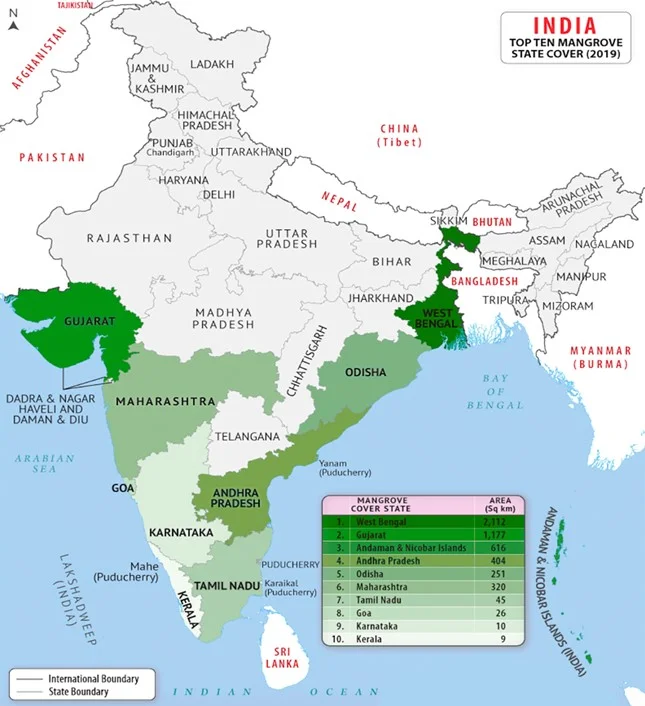Answer:
| Approach:
Introduction
- Start your answer with the importance of mangroves with Data.
Body
- Discuss the reason for decline in mangroves and its Significance.
Conclusion
- Conclude your answer with a futuristic approach.
|
Introduction:
Mangroves are an important part of coastal ecosystems, providing a range of ecological, economic, and cultural benefits. Despite their importance, mangroves have been subject to significant depletion in recent decades, with estimates suggesting that up to 50% of mangrove forests have been lost globally.

Body:
Reason for the decline in mangroves:
- Deforestation: Mangrove depletion is deforestation, which is driven by the conversion of mangrove forests to agriculture, aquaculture, and urbanization. Like Sundarbans, a mangrove forest in Bangladesh.
- Climate Change: Climate change has had a significant impact on mangroves, with rising sea levels and changes in precipitation patterns leading to the loss of coastal habitats. E.g Climate change has also led to rising sea levels, which is causing saltwater intrusion and killing off the mangroves.
- Pollution: Pollution, particularly from oil spills, can have a devastating impact on mangroves, destroying habitats and affecting the health of marine life. The emergence of shrimp farms has caused about 35% of the overall loss of mangrove forests.
- Overfishing: Overfishing can disrupt the ecological balance of mangrove ecosystems, reducing the abundance of fish and other marine life.
Significance of mangroves:
- Shoreline stabilization: Mangroves serve as a natural buffer against coastal erosion, helping to stabilize shorelines and prevent the loss of land to the sea.
- Biodiversity conservation: Mangroves provide habitats for a diverse range of plant and animal species, including many that are endangered or threatened. They serve nurseries for juvenile fish and other marine life.
- Carbon sequestration: Mangroves are highly effective at storing carbon, making them important allies in the fight against climate change. They can store up to five times more carbon per hectare than tropical forests.
- Coastal protection: Mangroves can help to mitigate the impact of storms and natural disasters, reducing the risk of damage to coastal communities.
- Economic benefits: Mangroves provide a range of economic benefits to local communities, including timber and non-timber forest products, as well as fisheries and tourism.
Conclusion:
Mangroves are vital, but threatened ecosystems. Depletion caused by human activities has significant implications for coastal ecology. Conservation, sustainable management practices, and restoration are needed to ensure their long-term health and resilience.
